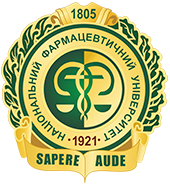SCIENTIFIC LIBRARY IN FIGURES
The Scientific Library of NFaU is an information and communication center of education and science. It promotes the intellectual growth and education of new personalities in pharmacy. The funds of our library are documentary evidence of the development of pharmaceutical education and science not only in Ukraine, but throughout the world. The library has valuable and unique domestic and foreign publications for pharmacy. Textbooks, manuals, methodological developments, monographs, reference books, materials of scientific conferences and articles from periodicals are represented in library collection.
The library fund is represented by the following collections:
- A collection of valuable and rare publications of the 19th – 20th centuries (Russian, English and German) – 401 copies. Such as “Guide to Pharmaceutical and Medical-Chemical Practice” (1889), “Archiv der Pharmazie”, “Zeitschrift für Analytische Chemie”, “Pharmaceutisch Weekblad” (1842), “Pharmaceutical Journal” from 1879 and others
- Unpublished documents – about 9000 copies of dissertations, abstracts of dissertations, diploma and master’s theses
- More than 549 000 copies of scientific, educational, reference and artistic publications.
- Electronic documents – about 27 000 copies.
For our users are available:
- 6 delivery desks
- 6 reading rooms, which are equipped with modern computer technology
Electronic resources of Scientific Library:
- Electronic catalogue;
- Electronic library;
- Electronic archive of NUPh;
- Bibliographic database “Proceedings of scientists of the NFaU”;
- Database “Book supply of the educational process”;
- Database “Electronic abstract journals VINITI”;
- Database “Abstracts of dissertations NUPh”.
To increase the information culture of readers, bibliographers of the scientific library conduct library-bibliographic classes “Fundamentals of Information Culture”, “Postgraduate Days” and “Graduate Weeks”.

